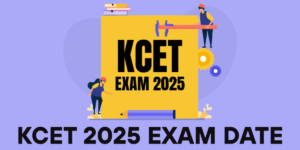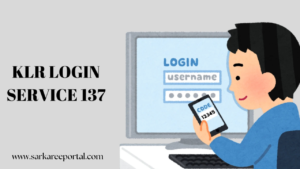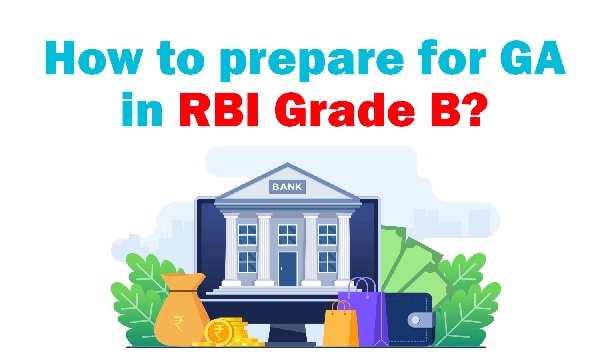
Is the RBI Grade B GA section making you feel scared? That’s quite understandable! After all, It’s a hard nut to crack. In this guide, we will guide you through everything needed to tackle GA, helping you reach your RBI goal.
You don’t wish to be someone who does well in every part but flunks GA. If it seems like a weak spot, with proper help and a clear study plan, you can improve this weakness and succeed in the RBI Grade B Phase 1 test! The trick is a strong GA plan.
Changes in RBI Grade B Examination Landscape
In recent years, the RBI Grade B exam has changed to reflect the dynamic nature of the financial sector.
The exam now places significant emphasis on digital banking innovations, international economic developments, and technological advancements in finance. And not just RBI Grade B, many government exams have been including GA in their papers.
RBI Grade B Phase 1 Exam Pattern and Scope
The RBI Grade B GA section would usually include a diverse set of topics, such as current affairs, banking and financial awareness, economic news, static general knowledge, and national and international events.
In this paper, 80 questions have to be answered in 20-25 minutes only, using a marking scheme that gives one mark for a correct answer and quarters a mark off for a wrong answer. This grueling format calls for knowledge as well as accuracy and intelligent thinking.
It’s intentionally broad, ranging from various domains:
- Contemporary national and international events
- Banking and finance industry developments
- Economic policies and trends
- General static knowledge
- Latest technological developments
- Government reforms and initiatives like PM POSHAN.
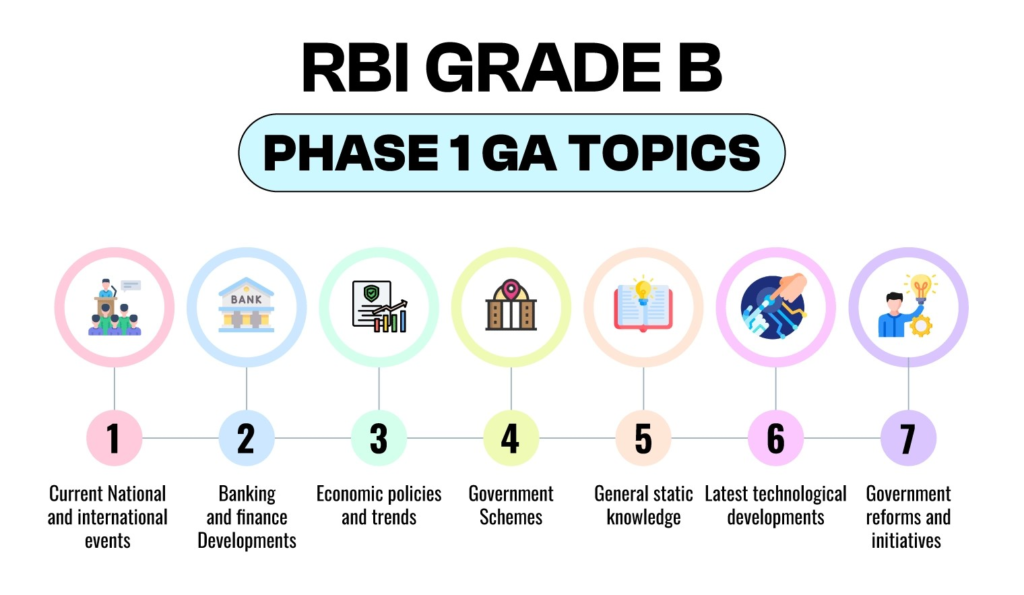
Focus Area for RBI Grade B GA
The RBI Grade B syllabus has turned towards newer and more promising areas over the last decade. Innovation in digital banking has now become the mainstream, where the candidate needs to be equipped with knowledge of emerging trends.
Fintech and cryptocurrency regulations have become some of the focal areas for the developments concerning digital payments and technological interference in banks.
Economic reforms are also an important component now. Candidates need to reflect knowledge of government packages concerning the economy, stimulus packages, global economic revival strategy, and the complex relationship of national and international economics in policy-making.
More importance is given to analyzing and contextualizing news about the economy than fact-based recall.
Strategic Preparation Approach
Building a Thorough Reading Strategy
Good preparation starts with changing how one reads. Reading needs to be an active, not passive, process. A student needs to train his/her self to read beyond headlines; he/she needs to realize what lies beneath the news and current affairs.
Recommended reading materials go way beyond the conventional textbook list:
- Leading financial newspapers like the Economic Times and Business Standard
- RBI and government publications
- Economic magazines
- Genuine online news portals
- Economic policy journals and research publications
The aim is not to memorize facts but to develop a holistic understanding of economic ecosystems, policy frameworks, and global interconnections.
Leveraging Digital Learning Tools
The digital age, not only has crossed all traditional boundaries but has also prepared itself at a more advanced level.
Current affairs and learning materials are available at the click of a button through online resources, mobile applications, or digital platforms.
Candidates can benefit from:
- Mobile Applications for Current Affairs
- Online expert discussions and webinars
- RBI Social media handles and Government handles
- Online specialized learning platforms
- Collaborative study groups and forums
What these provide is real-time updates, diversity in opinion, and interactive learning opportunities.
They inform candidates about the most recent news and enable them to understand complex economic concepts using multimedia resources.
PYPs and Mock Tests for RBI Grade B GA
Practicing is not just advised, but it is necessary. Solving RBI Grade B previous year question papers and taking regular mock tests helps candidates develop multiple critical skills:
- Time management
- Analysis of question paper pattern
- Stress management
- Answering techniques
These mock tests are each a chance to discover weak spots and strengths, adjust preparation strategies, and cultivate confidence.
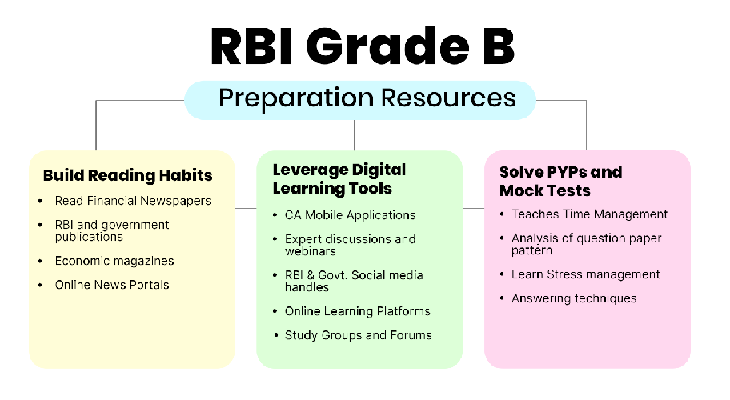
Common Preparation Challenges
Candidates often encounter several challenges during their preparation journey:
- Information overload
- Lack of ability to retain current affairs
- Balancing static and dynamic knowledge
- Managing time during preparation and in the exam
The trick is to have a system, to have a way of breaking things down so they’re easy to study.
Conclusion
RBI Grade B GA section is not an examination but more. This is a stepping stone to breaking down the complex economic process that is needed in Phase 2.
It’s not just academic preparation necessary for success in RBI Grade B exam – it needs curiosity and analytical thinking.
In this preparation, aspirants should think of it as a change of learning and growth. As you read each article, and take each mock test, each topic clears, and you get closer to not just passing an exam but becoming an important decision maker of India’s economy.
